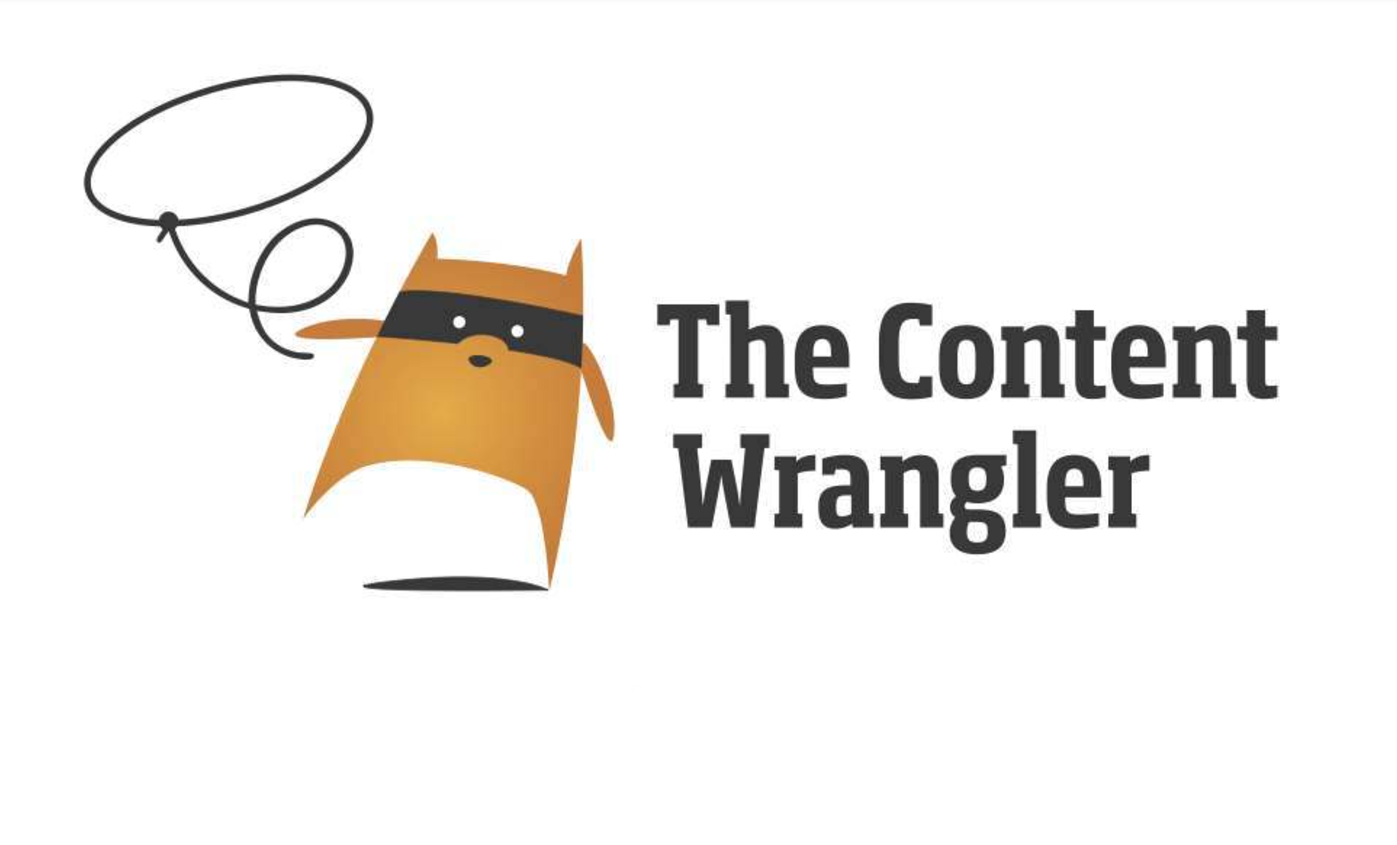Content Marketing Strategies Now and in the Future: An Interview With Scott Abel, The Content Wrangler

We sat down with Scott Abel to talk content marketing strategies. Scott is Founder and CEO of The Content Wrangler, a San Francisco-based international content strategy consultancy.
CONTENT GARDEN: We work a lot with small businesses and non-profits who don’t have a content strategist or content marketer on staff. Can you speak to why the ability to develop and deploy effective content is important for smaller organizations’ content marketing strategies?
Scott: “Effective” is the operative word here. In order to develop effective content—content that achieves a desired goal or intended result—we must put a plan in place that helps measure whether our efforts produce the goal we forecast. Strategy is the key to success. The lack of a formal content strategy is the biggest problem facing content-producing organizations.
First, content marketing is something you do. It’s not a plan for the future. It’s not a strategy. It’s a tactic. There’s a huge difference between a strategy and a tactic.
Content strategy is the plan of attack, the roadmap to your destination. It’s the planning that most small companies skip. And, those that do plan can beat the pants off their competition.
Deployment is the second biggest problem facing organizations today. That’s because content strategy isn’t about making an editorial calendar (although that should be a tool you use to implement your strategy) it’s about planning what you will create, for whom, and why. It’s about knowing what it cost to deliver content to those who need it across every channel used by your target audience. And, it’s about understanding how content travels (how machines process and deliver it).
Content strategy can—and should—consider the way the content is created, how it will be reviewed, approved, formatted, translated, delivered, and reported on. It’s much more than writing snappy prose punctuated correctly.
CONTENT GARDEN: In your mind, what is the relationship between content strategy and content marketing? Are they two completely different disciplines? Or are they more interrelated skill sets that are part of a bigger discipline?
Scott: I believe I addressed that question above.
First, content marketing is something you do. It’s not a plan for the future. It’s not a strategy. It’s a tactic. An approach. There’s a huge difference between a strategy and a tactic.
CONTENT GARDEN: Our President, Guiseppe Getto, attended a webinar by you a couple years back entitled The Future of Technical Communication Is Marketing (https://www.brighttalk.com/webcast/9273/135103). Do you feel that the need to develop effective content (as opposed to simply writing documentation that lives in one place) is the main reason for this shift or are there other factors? A few years later, do you still stand by your assertion that marketing is the future of tech comm?
Scott: Everything is marketing. If it can have an impact on how a consumer feels about a brand, that content is marketing. Period. End of story.
I don’t just believe that, I know it’s true. Science tells us this. Even our parents and teachers tell us this from the time we are just children. Impressions matter. Especially first ones.
Documentation is one part of the customer experience. Customers also experience content when they interact with legal contracts, sales invoices, voice mail response systems, privacy policies, error messages on computer screens, return policies, terms of service, frequently asked questions, customer support representatives, user guides, training materials, signage, audio messages, and advertisements. The list goes on and on. Everything is marketing— a critical fact many companies ignore.
CONTENT GARDEN: What do you see as the major challenges ahead for people who work primarily in the realm of content? Adapting to new technologies? Developing new technologies? A shifting mindset?
Scott: The major challenge we face today is our inability to see progress as it increases in velocity. Everything is changing; faster than most anticipate. If you’re not paying attention to artificial intelligence and agentive technology, you’re in danger of being replaced by a machine. No, not all human jobs will be automated — but many will be. Far more than people imagine. That’s because organizations today have recognized the need to atomize (or modularize) tasks (and content). As we start to connect automation systems together, there will be no need (or, at least, a drastically reduced demand) for people to perform many of the tasks they do today. So, writing and content production jobs will change dramatically. It may take a few years to notice if you’re not paying attention. But if you listen closely, you can hear the wheels of change approaching faster than you might imagine.
CONTENT GARDEN: Finally, can you touch briefly on the term people associate most closely with you: Intelligent Content? What are new developments in the world of Intelligent Content? We see a lot on your site lately about automation and AI, for example. How do you think these trends will affect the need for Intelligent Content in the future and content marketing strategies, more broadly?
Scott: Intelligent content isn’t all that important as a topic. What’s important is that we value content as a business asset and empower it to provide us with every dollar of value possible. Putting content to work for maximum return on investment is the real challenge. Adopting intelligent content is often part of the mix, but it shouldn’t be the focus of our efforts.
Artificial intelligence systems are coming online that promise big improvements to the way we live, work, and play. Those promises are mostly empty until we teach systems what they need to know. It’s important to recognize that when you hear the terms “machine learning” you should also hear “machine teaching” because that’s what’s required together to the information management and delivery utopia promised by these advanced technologies.
But, to be clear, if your company produces structured, semantically rich, intelligent content you are in a far better place to take advantage of machine learning and artificial intelligence than companies that have not.
Need Help With Content Marketing?
Get a Free 30-Minute Consultation Affectionately known as “The Content Wrangler,” Scott Abel is the Founder and CEO of The Content Wrangler, a San Francisco-based international content strategy consultancy that specializes in helping content-heavy organizations improve the way they author, maintain, publish and archive their information assets. In turn, this helps them deliver the right information, to the right people, at the right time, in the right format and language, and on the device of their choosing. A formal journalism education, combined with more than 10 years as a technical writer, makes Scott a natural choice for content professionals and organizations who need the tools to write content once and use it often. Scott is also an internationally recognized content strategist and vibrant speaker. He’s frequently employed as a keynote presenter at content industry events like Content Marketing World, Localization World London, Adobe Day, O’Reilly Fluentconf, Localization World Singapore, Technical Communication UK and LavaCon. Scott writes regularly for content industry publications and and was listed by eContent magazine as one of the top 50 content marketing resources on Twitter.
Affectionately known as “The Content Wrangler,” Scott Abel is the Founder and CEO of The Content Wrangler, a San Francisco-based international content strategy consultancy that specializes in helping content-heavy organizations improve the way they author, maintain, publish and archive their information assets. In turn, this helps them deliver the right information, to the right people, at the right time, in the right format and language, and on the device of their choosing. A formal journalism education, combined with more than 10 years as a technical writer, makes Scott a natural choice for content professionals and organizations who need the tools to write content once and use it often. Scott is also an internationally recognized content strategist and vibrant speaker. He’s frequently employed as a keynote presenter at content industry events like Content Marketing World, Localization World London, Adobe Day, O’Reilly Fluentconf, Localization World Singapore, Technical Communication UK and LavaCon. Scott writes regularly for content industry publications and and was listed by eContent magazine as one of the top 50 content marketing resources on Twitter.


